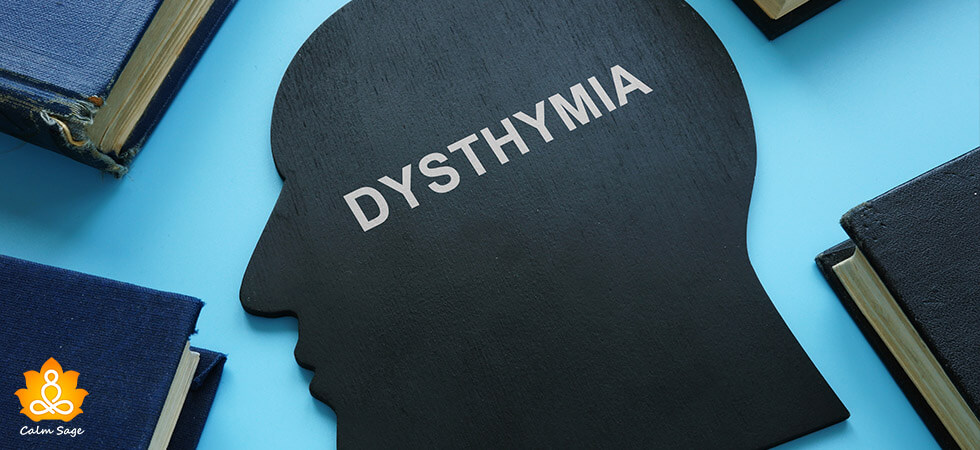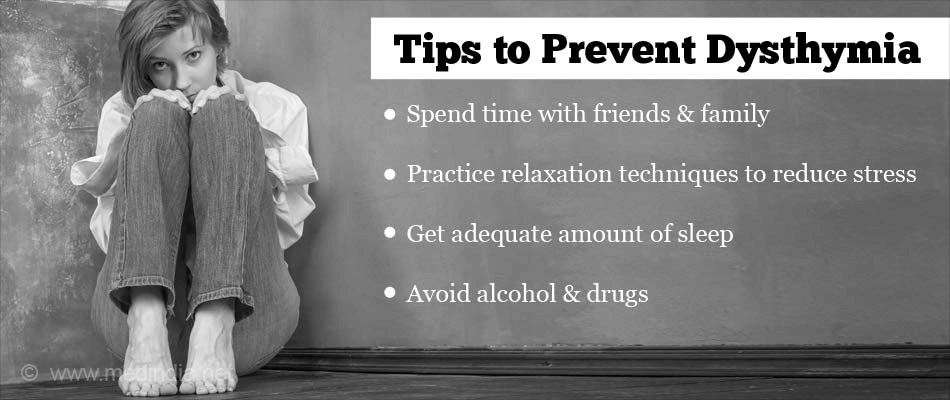Dysthymia (Persistent Depressive Disorder): Causes, Symptoms & Treatment

Persistent Depressive Disorder or Dysthymia can be defined as a long term or chronic form of depression. It is comparatively a new form of depression, formed by a combination of formed dysthymia and chronic major depressive disorder. The person facing PDD loses interest in their everyday activities, feels hopeless or worthless and lowers down their self-esteem.
Those who have the persistent depressive disorder have a low feeling even when the surroundings are happy. There are chances of being called gloomy or people may even complain about your sad behavior. However, it is important to know that dysthymia symptoms are not as severe as major depression.
What Are The Symptoms Of Persistent Depressive Disorder?
Persistent depressive disorder is a major component of double depression. One must know that symptoms of PDD may change during passage of years but last at least 2 years in adults and 1 year in children. The symptoms that you can notice are:
- Constant sadness, emptiness and feeling of worthlessness
- Tiredness and lack of energy
- Trouble concentrating in work
- Irritability and angry outbursts
- Constant guilt and worries of the past instances
- Change in appetite like overeating or avoiding food
- Avoiding social activities
- Disturbed sleep pattern
What Are The Common Causes Of Dysthymia or PDD?
One may say that the exact causes of PDD are not known yet but the common causes include:
- Genetics: If someone in the family is already facing depression for a long time, there are risks of passing the same to the next generation.
- Environmental factors: Factors like stress, loss, grief, trauma or major life changes may become the primary cause of PDD.
- Brain chemistry: Recent searches have shown that change in functioning of neurotransmitters play a significant role in developing dysthymia.
Diagnosis & Treatment Of PDD
After learning dysthymia symptoms and causes, you must find out about the diagnosis and treatment of chronic depressive disorder.
Diagnosis:
When it comes to diagnosis, understand that there is no specific laboratory test for the same. However, the doctor will figure out the symptoms and medical history by understanding the nature of duration and nature. There could also be some physical or blood tests to identify the root cause of the problem. In case you are consuming alcohol or drugs, it is better to communicate to the doctor for easy diagnosis of dysthymia disorder.
Treatment:
Dysthymia treatment demands for a combination of psychotherapy and medications. The treatment could also look similar to other treatments of depression. Medications must be taken as advised by doctors only as they are prescribed according to your specific conditions.
Coming to psychotherapy for treatment of chronic depressive disorder, there are a variety of techniques that are applied to a person. You can understand two major therapies that are used for the treatment and come under the umbrella of Talk therapy.
- Cognitive Behavioral Therapy: The therapy helps in identifying the disturbing thinking pattern which is impacting the behavior of a person. Afterwards, the therapist replaces negative thoughts with positive ones and explains techniques to deal with the problem.
- Interpersonal Therapy: It is also similar to CBT but focuses on identifying problems of relationship and communication. Once identified, therapists try making improvements and relate it to others.
Disclaimer: As BetterHelp Affiliate, We may receive compensation from BetterHelp or other sources if you purchase products or services through the links provided on this page.
Other Coping Mechanisms
Apart from the treatment and medications, there are other coping mechanisms that must go hand-in-hand for quick recovery from chronic depressive disorder. It includes:

Image source: Medindia
- Keeping your diet healthy with an adequate amount of nutrients. It is also required that alcohol and drugs are kept aside during the treatment.
- Follow a scheduled sleep cycle and make sure to complete 7-8 hours of sleep everyday.
- Practice regular exercises, at least 4 times a week.
- Go outside, take a walk in nature and meet your friends and relatives. It is required that you maintain a safe distance from toxic people.
Wrap-Up
Dysthymia or persistent depressive disorder could be treated well, provided the treatment begins as soon as dysthymia symptoms surface. This is why you must acknowledge yourself with the facts and treatment of dysthymia and act upon it swiftly. We are standing beside you as an all-time support and you can simply drop us a line at info@calmsage.com to begin with the recovering process.






















Basically Persistent Depressive Disorder is a chronic form of depression that may cause you to lose interest in life, feel hopeless, lack productivity.